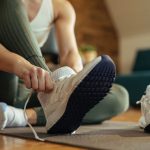New study: LOWER the risk of cancer by exercising at the “right time” of the day
 (NaturalHealth365) A new study published in the International Journal of Cancer might just give you all the extra incentive you need to set your alarm and get up for that early morning workout. Because, we all know that popular saying, “timing is everything.”
(NaturalHealth365) A new study published in the International Journal of Cancer might just give you all the extra incentive you need to set your alarm and get up for that early morning workout. Because, we all know that popular saying, “timing is everything.”
The study, conducted by a team of Spanish researchers, reveals that working out earlier in the day may reduce your cancer risk. Of course, the benefits of exercise – from improved weight loss to better heart and brain health – can still be achieved no matter when you workout, but the new data champions the idea of being an early bird.
People who workout at this time of day appear to have a LOWER risk of cancer
The study in question was published in late September 2020. The researchers wanted to figure out if and how time-of-day for physical activity influenced a person’s risk of cancer.
From 2008 to 2013, the researchers analyzed the data of 2,795 people from a Spanish multi case-control study cohort, 1,285 of whom had breast cancer or prostate cancer. The researchers asked these individuals about their physical activity habits, including what time of day they worked out. This information was compared to about 1,500 age-matched controls who were cancer-free.
While not all their findings reached statistical significance, the researchers did pull out some intriguing trends.
For example, based on a mathematical model the researchers hypothesized that the odds of developing breast cancer decreased by 25% when exercising in the morning compared to not exercising at all. The same model hypothesized that early morning workouts reduced the risk of developing prostate cancer by 27% compared to not exercising.
There also appeared to be a protective benefit of late-night workouts for prostate cancer, with the researchers estimating a 25% reduced risk in people who worked out between 7:00 p.m. and 11:00 p.m. But overall, the researchers conclude that exercising between 8:00 a.m. and 10:00 a.m. appeared to offer the greatest potential benefit for reducing the risk of cancer.
Why would early morning exercise potentially reduce cancer risk?
Here are a few possible explanations:
- Breast cancer is associated with increased levels of the hormone estrogen. Estrogen happens to be decreased by exercise. Estrogen production also appears to be most active in the early morning, so exercising during this time may help lower the overall levels of this influential hormone.
- Research has also suggested that melatonin – a key hormone involved in a person’s circadian rhythm – may protect against cancer, but that exercising later in the day or at night time may delay melatonin production.
As mentioned, the results of this study did not achieve statistical significance. And, certainly, most health experts would agree working out at any time of the day is likely better than not working out at all as far as cancer prevention goes.
But this study may provide extra motivation for anyone hoping to get their workout done earlier … especially if they tend to skip their workout after a long day.
Want to start working out in the morning? Set yourself up for success with these three tips
If the thought of getting up early to workout sounds impossible, here are three simple hacks that can make it easier (and safer):
- Go to bed earlier: Adequate sleep is essential for general health. Plus, chronic sleep deprivation has been shown to increase the risk of accidents and impair physical performance.
- Set your alarm early enough so you have time to complete a proper warm-up. Warming up before any exercise is important from a safety point, but it’s especially important in the early morning when your joints and tissues are stiffer.
- Recruit some external accountability: Sign up for an exercise class or team up with an exercise buddy. Knowing other people are relying on you to be there will prevent you from skipping your gym session and hitting the snooze button.
Sources for this article include:



